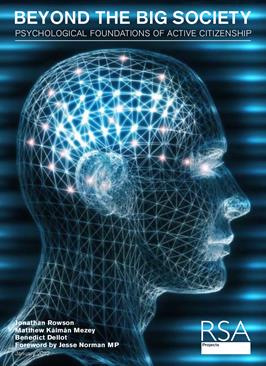The Big Society is at its weakest when it is presented as a partisan technical solution to acute socio-economic problems, and at its strongest when viewed as a non-partisan long term challenge to enrich our social and human capital.
This paper tries to build those firm foundations. The challenge is to increase the salience of the idea, now supported by a wealth of research, that adults vary developmentally, just as children do, and to explain why that matters. The Big Society could either promote adult development through innovative forms of participation and education, or ignore adult development, in which case the idea is likely to fail because people will regularly find themselves performing tasks beyond their competencies, and will not feel the efficacy and fulfilment that participation can potentially offer.
The main purpose of this report is to highlight the nature of this hidden curriculum, and indicate how it might inform policy and practice, particularly in relation to releasing hidden social wealth and increasing social productivity.
For the Big Society to take root, we need to invest more time and energy making sure that the forms of participation and engagement called for as part of the Big Society are supported by formal and informal adult education. Social productivity requires that people are both supported and challenged.
pdf 463.7 KB
Contributors




Related reports
-
Easier said than done - why we struggle with healthy behaviours and what to do about it
Many of us know what we should be doing to live healthily, yet many of us struggle to actually actively manage our health. This report asks why and what we can do about it.
-
Wired for imprudence
Natural human characteristics can make it hard to manage our money well. This report identifies six of these behavioural hurdles to financial capability, and explores what this means for financial education.
-
The Seven Dimensions of Climate Change: Introducing a new way to think, talk, and act
Our report suggests that climate change is not about 'the environment', it's a problem with seven main dimensions: Science, Behaviour, Technology, Culture, Law, Economy and Democracy.




Be the first to write a comment
Comments
Please login to post a comment or reply
Don't have an account? Click here to register.